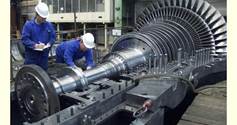ITI Fitter
ITI Fitter is a mechanically related branch, Where you get to learn about fitting.
Within this 2-year course, you are given such knowledge so that you can work with any kind of fitting.
Pipe fittings, Machine fitting, and structure fittings are the main working areas, on which a fitter works. 
In other words, we can say that a technician who puts together or installs Machinery, plants, machines, and other mechanical products are called as a fitter.
If you have also seen a plant being built or a machine installed, then you must have seen how a fitter works to connect each part with very accuracy.
What students learn during the ITI fitter course-
The fitter course gives a sound knowledge of different types of fittings.
the course starts with the basic safety measures and further gives subject knowledge.
Simple marking out, filling, heat tempering, lathe work, drilling, grinding, different types of bolts fittings and others.
Who should Join the ITI fitter course?
Students whose interest is about the machine, who enjoy working on the machine, should do this course.
Apart from this, for students who want to get technical knowledge by paying a low fee in a short time, which can give them a good job and a good career, then it is also a great course for them.
Eligibility for ITI Fitter-
Any student of class X can join the ITI Fitter course.
Your 10th can be from any recognized state board or CBSE board, no matter where you have done 10th, in the admission.
Physical ability
It is a mechanically related branch and you have to work physically with the help of tools. Therefore, it is necessary for the students doing this branch to be physically fit so that they can do the fitting work correctly and safely.
Career options after ITI Fitter course-
After completing the ITI Fitter course, you have a lot of career options out of which two are the major ones that either you can go for higher education or you can go for a job.
There are two things in the job either You can work in the private sector or you can prepare for the government sector job.
ITI Fitters Jobs-
After doing this course, many jobs are available in the government sector and in the private sector, in which a student can join according to their knowledge and interest.
the key roles one ITI Fitter can get are-
- Fitter
- Welder
- Machine Operator
- Pipe Fitter
- Mechanical Fitter
- Lathe Machine Fitter
- Technician
- Trainer
ITI Fitter Government Jobs-
- Bhel
- Indian Oil
- Hindustan Petroleum
- Bharath Petroleum
- Gail
- Sail
- Electricity Department
- Indian Railway
- NTPC
Salary after ITI fitter course-
After doing this course, your salary depends on which company you have joined.
If you go to the private sector, the starting salary can be from 8000 to 10000 a month.
And even if you get a chance to work in a government sector company, you will get a stipend of 8 to 10000 a month.
Many people also go to foreign jobs and earn good money. Most of the people who go abroad from India go to Gulf Countries.
Do not make a wrong impression about this course by looking at the salary of this beginning because you are going to earn very well with experience.
The higher education after ITI Fitter-
After doing the ITI Fitter course, if any student wants to go for higher education then the best option is to do a Diploma in Engineering or Polytechnic.
In Diploma in Engineering, you will get admission in any branch related to mechanical, you will get admission directly in the second year, which saves you 1 year in this 3-year course.
If a student wants to do simple graduation, then he has to do twelfth.
Or another option is that he has to do twelfth from NIOS with his ITI course or separately after which he can also do graduation from NIOS only.
Business after ITI Fitter course (Self Employment)-
Many people start their own business after doing ITI Fitter course, you will find many successful businessmen in the field of fitting around you who started their own business after doing this course.
After doing this course, if you also have to start your own business, then the advice before that is that you must take at least 2 to 4 years of experience.


